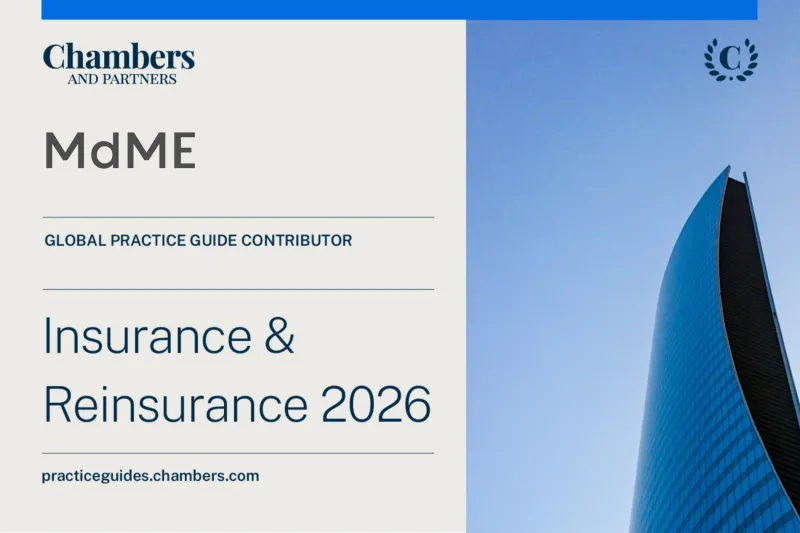Macau’s new Investment Funds Law
The Macau Legislative Assembly has just approved the long anticipated Investment Funds Law (“IFL”), aimed at modernising and diversifying the city’s financial sector, marking a bold step toward the development of a competitive, transparent, and globally integrated investment fund market.The IFL replaces the outdated 1999 regime, and is expected to come into force on 1 January 2026. We summarise below the main features of the IFL:

1. Scope & Key Definitions
The IFL governs the creation, functioning and supervision of investment funds and management entities of investment funds, defines core concepts such as fund units, management entities, custodians, investors, external investment manager, and commercialising entities. It further distinguishes between public fundraising (mass-market) and private fundraising (targeted at investors who fulfill certain criteria).
Funds may be constituted as contractual funds, investment companies (“SIC”) or limited partnerships (“FPL”). Funds may also adopt flexible structures such as umbrella funds with sub-funds (fund composed of two or more subfunds), master-feeder funds (fund composed of a main fun – “master” – and several subordinate funds – “feeders”) and funds of funds.
Furthermore, the IFL classifies funds by investment objective: Securities Investment Funds; Real Estate Investment Funds; and Alternative Investment Funds.
In addition, funds may be open-ended (fund made up of a variable number of participation units), closed-ended (fund consisting of a fixed number of participation units, which, in principle, cannot be redeemed), or hybrid (fund that combines the characteristics of open-ended and closed-ended funds, whose participation units can be partially redeemed or partially fixed under specific conditions), and investors acquire and transfer units via regulated account systems ensuring traceability and integrity.
2. Fund managers
Authorised entities — SGFs, credit institutions, finance companies or other entities authorised to manage funds— must meet strict governance, capital adequacy, and staffing criteria. Their responsibilities include, inter alia:
- Investment management: portfolio selection and risk management;
- Administrative management: accounting, reporting, valuation;
- Commercialisation management: communication with commercialisation entities and compliance.
They are prohibited from certain high-risk activities, such as excessive leverage or extending credit from fund assets.
3. Custodians
Only authorised entities (authorised credit institution and other financial institutions) may carry out custodian activities. Custodians should establish appropriate policies and procedures to ensure compliance with legal and contractual obligations by its staff and leadership. It must implement strong administrative, accounting, and internal control systems, along with effective risk assessment and information system protections. In addition, custodians should maintain complete records of all activities, and use adequate resources to ensure operational continuity. Moreover, all senior managers and board members must act with integrity and possess a good reputation, knowledge, and professional experience.
4. Commercialisation Entity
When promoting or marketing a fund, the commercialisation entity must act publicly, impartially, and objectively, avoiding any misleading practices. It must comply with the fund’s governing documents and applicable laws, avoid making false or exaggerated return promises, clearly disclose associated risks to ensure investor understanding, and timely forward subscription and redemption orders to the fund manager as per their agreement.
5. Marketing of foreign investment funds
Foreign funds must obtain AMCM’s prior authorisation before being marketed to Macau investors. They must disclose the fund’s structure, fees, risks, and regulatory details. All promotional materials must clearly state the fund is not domiciled in Macau and may be subject to different regulatory standards. AMCM may also require regular sales and marketing reports from commercialisation entities.
If foreign funds violate Macau’s laws or supervisory rules during promotion or marketing activities, the AMCM may, depending on the severity:
- Order corrective action within a set deadline;
- Suspend or revoke their marketing authorisation, or
- Take other necessary legal or regulatory measures.
6. Redomiciliation
The redomiciliation of foreign funds to Macau preserves their legal personality and continuity, with no need for re-incorporation. All rights, obligations, and contracts remain valid. It shall not be treated as a transfer or sale and shall be tax-neutral in Macau. Legal and financial records remain uninterrupted. The fund adopts a Macau tax domicile, must protect investor rights through proper disclosures and governance, and comply with local AML/CFT and regulatory standards.
7. Recordkeeping and registration requirements
The fund manager must continuously record and update all fund-related operations to ensure data integrity, accuracy, and security. This includes details like order ID, timestamp, number of participation units subject to the transaction, and value of the operation.
Fund units must be registered in the accounting system to be constituted as securities, which legitimises investor rights and tracks all transactions, ownership, and legal annotations. AMCM may specify, by notice, the additional information that must be produced and retained.
If the registered holder isn't the beneficial owner, they must maintain and provide identification records of the ultimate beneficiaries upon request.
8. Fundraising Regimes: Public and Private Funds
The IFL defines two modes of capital raising: public fundraising, directed at the general public, and private fundraising, limited to qualified investors. Each regime is subject to distinct formation, disclosure, and oversight rules, with the IFL introducing, for the first time, a formal legal framework for private funds in Macau.
(i) Public Funds
Under the IFL, public funds are defined as investment funds that raise capital from the public through general solicitation, including mass media, digital platforms, and other public-facing communication channels. These funds are typically open to retail investors and are therefore subject to stringent regulatory requirements to ensure investor protection.
Public funds require AMCM’s prior authorisation before launch. This includes the approval of core fund documents (e.g., constitutive instrument, prospectus, key investor information), designation of a qualified fund manager and custodian, and satisfaction of minimum disclosure and structural conditions. Public funds may only be constituted in two forms: as contractual funds or as investment companies (SICs).
They are also subject to comprehensive ongoing obligations, including periodic reporting (annual and semi-annual reports), disclosure of net asset value (NAV), investor meetings, and strict oversight over marketing practices. Redemption rights, pricing mechanisms, and suspension policies must be clearly defined in the fund documents and disclosed to investors. Public funds are expected to maintain a high standard of transparency and operational governance in line with international benchmark.
(ii) Private Funds
The IFL introduces, for the first time, a dedicated and comprehensive regime for private funds, representing a major departure from the prior legal framework under Decree-Law No. 83/99/M, which solely addressed public fundraising. Under the old law, private funds were not legally recognised and lacked any formal structure or regulatory guidance.
Private funds under the IFL are defined as those that do not conduct public offerings and instead raise capital through private placements directed exclusively at qualified or professional investors. This new regime allows Macau to align with international fund jurisdictions by enabling institutional-grade investment structures with regulatory proportionality.
Unlike public funds, private funds operate under a communication regime rather than requiring prior AMCM authorisation. Fund sponsors must submit a communication notice at least 15 business days before the intended offering, accompanied by key fund and manager information. If the AMCM raises no objection within the period, the fund may proceed to market to eligible investors.
Private funds benefit from greater structuring flexibility, with the ability to adopt any of the three legal forms — contractual fund, SIC, or limited partnership (FPL) — and without being subject to the public offering requirements of minimum investor count or capital thresholds. However, they remain subject to baseline governance and compliance standards, including verified investor qualification, annual audited financial reporting, and sound operational separation of assets.
They are prohibited from engaging in any public advertising or general solicitation. The AMCM retains oversight powers and may inspect or intervene in private fund operations to protect market integrity or investor interests.
In addition to compliance with the IFL, private fund managers must also adhere to the detailed operational and supervisory rules set out in AMCM’s Circular 007/B/2023‑DSB/AMCM (“Guideline on Management and Operation of Private Investment Funds”), effective 21 August 2023.
By introducing this new private fund regime, the IFL opens a strategic opportunity to develop Macau’s wealth management industry. Private funds offer an efficient and professionally governed vehicle for high-net-worth individuals (HNWIs) to access bespoke investment strategies, including family office structures, co-investment platforms, or alternative asset pools. The combination of legal certainty, structuring flexibility, and light-touch supervision positions Macau as a viable fund domicile for private wealth solutions and cross-border capital planning.
By introducing this new private fund regime, the IFL broadens the financial ecosystem, attracting sophisticated capital and positioning Macau as a more versatile fund domicile.
9. Transition period
Existing funds and managers operating in Macau have one year from the law’s entry into force to adapt to its provisions. This includes regularisation of documents, systems, and operational procedures to ensure compliance with the new regime.






